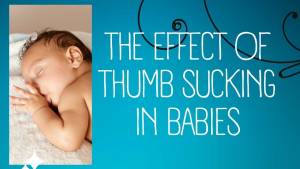Babies can pick germs through contact with unclean food or water or when they touch germy surfaces and then put their hands into their mouths🤦🏽♀️.
You can find a lot of different textures, colours, and odours in a baby’s poopy diaper based on what they are eating (breast milk, formula, or solid foods).
The poop is normally much softer than an adult’s poop and it’s not uncommon for it to be even softer than usual sometimes. But if it suddenly gets much looser or waterier, and happens more often and in large amounts, it might be diarrhoea, what we all call STOOLING
WHAT IS DIARRHOEA
Diarrhoea is the passage of loose stool more than 4 times and above. It isn’t just a loose stool; it’s a watery stool that can even occur up to 7-12 times a day.
Please Let’s Note This:
- If you’re Exclusively breastfeeding: A breastfed baby’s stools are light yellow, soft, or even runny, and they often contain small pieces that look like seeds. Breastfed babies may pass stools with every breastfeeding. It is totally Normal ✅
- And if you’re on exclusive and your baby doesn’t poop up to 1 week but farts a lot, it is absolutely normal ✅.
- If your baby is formula-fed: Babies who are formula-fed pass stools that are yellow to tan and about as firm as peanut butter.
Whether you breastfeed or formula-feed your baby, as he grows it’s normal for you to see stools less frequently.
WHAT CAUSES DIARRHOEA IN BABIES
- An infection with a virus, bacteria, or parasite.
- A food allergy
- Side effects of any medicines.
- Drinking too much fruit juice
- Food Poisoning
EFFECTS OF DIARRHOEA ON BABIES
Diarrhoea makes the body lose too much water and minerals called electrolytes. That leads to dehydration. Babies can get dehydrated very quickly, within a few hours or a day after the diarrhoea starts and it can be very dangerous.
Please visit the hospital if you notice these signs of dehydration in your infant:
- Peeing less often (fewer wet diapers): Has not urinated in 6 hours if a baby or 12 hours if a child above 1-year-old.
- Acting fussy or irritable.
- Dry mouth
- No tears when they cry
- Unusual drowsiness or sluggishness
- Sunken soft spot on the top of the baby’s head.
- Dryness of the mouth.
- Fever
- Stomach Pain
- Vomiting
What Should You Do If Your Baby Is Stooling?
What you can do is prevent your baby from being dehydrated while you make plans to take her to the hospital for treatment.
BASIC TREATMENT FOR MILD DEHYDRATION AT HOME
When your baby has diarrhoea and is still very active, playing and able to drink water, you can do the following:
📌 Keep your baby hydrated. Keep breastfeeding if you’re nursing. If you’re formula-feeding, make the formula as normal and feed your baby.
📌 The use of electrolytes and Zinc for babies like ORS: These can help replace lost fluids and salts when babies have diarrhoea. Your first aid box should always contain ORS and ZINC.
👉🏾ORS is mixed with 1 litre of water and used within 24 hours, they should be discarded afterwards. Your baby can take 70 – 100mls per loose stool.
The use of ZINC tablets cannot be overemphasized.
📌 1/2 🌗 (half) tablet is used daily for 10 days for babies under 6months. Just dissolve into 5mls of water.
📌 1 (one) tablet is used daily for 10 days for babies above 6months. Just dissolve into 5mls of water.
📌 Change your baby’s diaper often. Try to keep them as dry as possible to help prevent a diaper rash during this period. Use your Sudo Cream.
📌 If your little one is eating solid foods, give them bits of foods that may help soothe diarrhoea. These include cereal, pasta, and bananas.
While you are doing all of these, please take your baby to the hospital for further treatment.
“Sports drinks are also not recommended for young children during diarrhoea,” for example Lucozade or Ribena.
“The beauty of oral rehydration products is that they have just enough sugar to allow for the absorption of sodium, potassium, and water without causing more diarrhoea”.
It’s important that you do all these while you proceed to the hospital for treatment.




